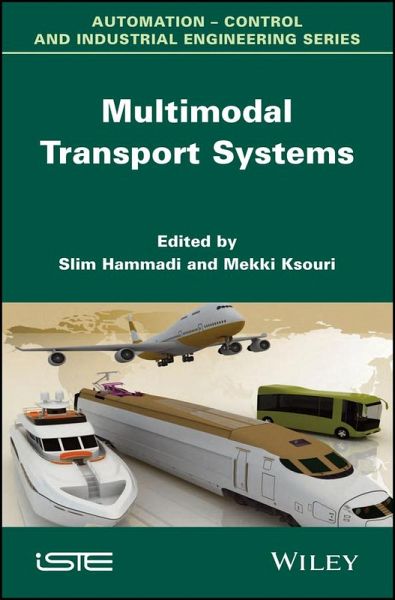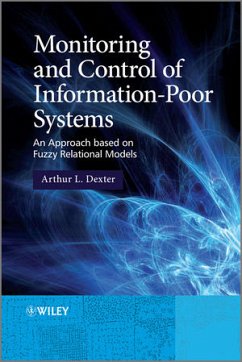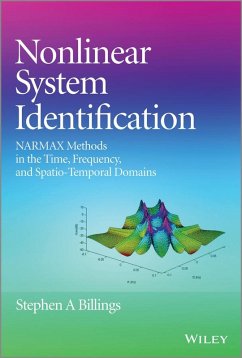
Multimodal Transport Systems (eBook, PDF)
Versandkostenfrei!
Sofort per Download lieferbar
139,99 €
inkl. MwSt.
Weitere Ausgaben:

PAYBACK Punkte
0 °P sammeln!
The use and management of multimodal transport systems, includingcar-pooling and goods transportation, have become extremelycomplex, due to their large size (sometimes several thousandvariables), the nature of their dynamic relationships as well asthe many constraints to which they are subjected. The managers ofthese systems must ensure that the system works as efficiently aspossible by managing the various causes of malfunction of thetransport system (vehicle breakdowns, road obstructions, accidents,etc.). The detection and resolution of conflicts, which areparticularly complex and must be de...
The use and management of multimodal transport systems, includingcar-pooling and goods transportation, have become extremelycomplex, due to their large size (sometimes several thousandvariables), the nature of their dynamic relationships as well asthe many constraints to which they are subjected. The managers ofthese systems must ensure that the system works as efficiently aspossible by managing the various causes of malfunction of thetransport system (vehicle breakdowns, road obstructions, accidents,etc.). The detection and resolution of conflicts, which areparticularly complex and must be dealt with in real time, arecurrently processed manually by operators. However, the experienceand abilities of these operators are no longer sufficient whenfaced with the complexity of the problems to be solved. It is thusnecessary to provide them with an interactive tool to help with themanagement of disturbances, enabling them to identify the differentdisturbances, to characterize and prioritize these disturbances, toprocess them by taking into account their specifics and to evaluatethe impact of the decisions in real time. Each chapter of this book can be broken down into an approach forsolving a transport problem in 3 stages, i.e. modeling the problem,creating optimization algorithms and validating the solutions. Themanagement of a transport system calls for knowledge of a varietyof theories (problem modeling tools, multi-objective problemclassification, optimization algorithms, etc.). The differentconstraints increase its complexity drastically and thus require amodel that represents as far as possible all the components of aproblem in order to better identify it and propose correspondingsolutions. These solutions are then evaluated according to thecriteria of the transport providers as well as those of the citytransport authorities. This book consists of a state of the art on innovative transportsystems as well as the possibility of coordinating with the currentpublic transport system and the authors clearly illustrate thiscoordination within the framework of an intelligent transportsystem. Contents 1. Dynamic Car-pooling, Slim Hammadi and Nawel Zangar. 2. Simulation of Urban Transport Systems, Christian Tahon,Thérèse Bonte and Alain Gibaud. 3. Real-time Fleet Management: Typology and Methods,Frédéric Semet and Gilles Goncalves. 4. Solving the Problem of Dynamic Routes by Particle Swarm, MostefaRedouane Khouahjia, Laetitia Jourdan and El Ghazali Talbi. 5. Optimization of Traffic at a Railway Junction: SchedulingApproaches Based on Timed Petri Nets, Thomas Bourdeaud'huyand Benoît Trouillet. About the Authors Slim Hammadi is Full Professor at the Ecole Centrale de Lille inFrance, and Director of the LAGIS Team on Optimization of Logisticsystems. He is an IEEE Senior Member and specializes in distributedoptimization, multi-agent systems, supply chain management andmetaheuristics. Mekki Ksouri is Professor and Head of the Systems Analysis,Conception and Control Laboratory at Tunis El Manar University,National Engineering School of Tunis (ENIT) in Tunisia. He is anIEEE Senior Member and specializes in control systems, nonlinearsystems, adaptive control and optimization.The multimodal transport network customers need to be orientedduring their travels. A multimodal information system (MIS) canprovide customers with a travel support tool, allowing them toexpress their demands and providing them with the appropriateresponses in order to improve their travel conditions. This bookdevelops methodologies in order to realize a MIS tool capable ofensuring the availability of permanent multimodal information forcustomers before and while traveling, considering passengersmobility.
Dieser Download kann aus rechtlichen Gründen nur mit Rechnungsadresse in A, B, BG, CY, CZ, D, DK, EW, E, FIN, F, GR, HR, H, IRL, I, LT, L, LR, M, NL, PL, P, R, S, SLO, SK ausgeliefert werden.












